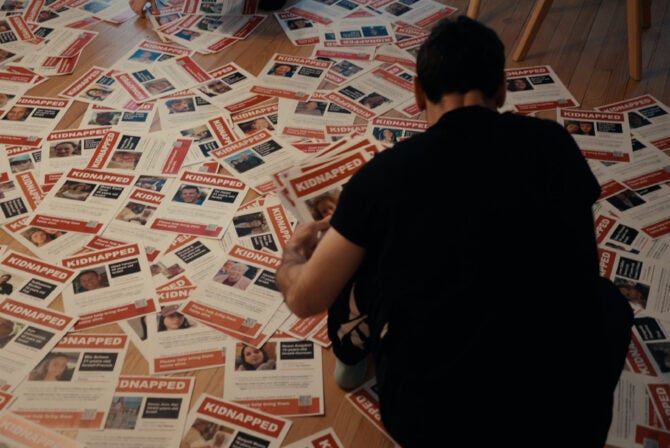There it was in plain English, a call for essays on the following topic: “What electing the first woman president means for my daughter.”
This is my chance, I thought. I can do this. I’m a writer and a lifelong feminist and activist. Electing the first woman president will be monumental. The glass ceiling will shatter. Equal pay for equal work will finally become a reality. For at least four years, we will cease worrying about Roe v. Wade being overturned. Sisterhood, joy, and laughter will abound. I was so pumped for election day—I could taste the victory, and I was certain I could write something fabulous about it.
But that essay wasn’t coming. As significant as Hillary Clinton’s upcoming victory would be for me, I was blanking on what it would mean for my daughter, or more specifically, what it would mean to my daughter. Just shy of 17, she was blissfully unaware, so it seemed, of all the courage, conviction, sweat, and power it took for women to obtain the vote, and to begin filling senate seats and judicial benches decades later. Like many young women, she didn’t seem to get that electing the first woman president would culminate years of struggle for equal pay, for reproductive rights, for maternity leave, and for respect. That it would be an enormous victory and change for us all.
For months, as I marveled and bragged about all of Hillary’s accomplishments, her poise and her toughness, my daughter went running from the room, covering her ears with her hands. Apparently politics was of little or no interest to my particular teenager.
I concluded, sadly, that electing the first woman president would mean absolutely nothing to my daughter. And, surprisingly, that maybe that was a good thing. Every generation needs to shed the baggage of the previous one. I was confused to no end when my father started jumping up and down—two feet into the air—after receiving a phone call during my childhood in the 1970s. “Why is Daddy so happy?” I asked my mother. She told me he had been promoted to the rank of Captain in the U.S. Navy Reserve—and added, with pride, that there were hardly any Jewish captains in the entire navy.
My father had broken new ground for Jews in America. But as a little girl, I had never witnessed the intense anti-Semitism of my parents’ WWII generation and couldn’t appreciate the full impact of his achievement. Similarly, the wave of feminism I have experienced and supported my entire adulthood has come and gone through our country, and many of our daughters don’t realize how the battles already fought and won have shaped their lives. That’s just how it goes.
Then something horrific and game-changing happened. At 2:40 a.m. on November 9, Hillary lost the presidency. A misogynist pig won the election. The Senate is lost as well. Goodbye Roe, goodbye “women’s rights are human rights,” goodbye assuming it common knowledge that women should not be ridiculed or grabbed by the pussy. And goodbye, for now, to “girls can grow up to be president.”
Hello day of tears and fears. Hello I am never turning on the TV again. And hello chocolate. Lots of it.
But one small thing occurred that is perhaps a silver lining for me. As I awoke Wednesday morning, feeling as if I had endured an assault of sorts the night before, my daughter came into my room to tell me she and her friends were wearing all black to school, as a day of mourning. In a sleepy stupor I remembered she was the last person to stay up with me last night, hours after our visiting friends went home to wallow in their misery and my husband and son had gone to bed. She and I had hugged before turning out our lights in a mother-daughter show of solidarity.
Wednesday she wore black. Maybe tomorrow, or in college, or whenever the time is right for her, she will take on the fight for women’s rights, just as my friends, my colleagues, and I will continue doing for the rest of our lives. Maybe we will have an army of new young women joining us on the front lines. Maybe, through this unspeakably harsh defeat, my daughter is becoming a feminist after all.
Read More:
Coming to Terms with Medical Termination
‘Do You Have Any Kids Yet?’ is a Question I Hope to Stop Hearing Soon
My ‘Invisible Illness’ Makes Me Feel Different from Other Moms







